Seemingly backed against the wall by the coronavirus, drag has found a way to endure in a time of grim uncertainty.
Related: Drag Queen For A Night: See How Pia Wurtzbach Recreated This RuPaul’s Drag Race Moment
Sure, you’ve watched every possible episode of RuPaul’s Drag Race, including all its spin-offs and the current highly controversial season. Yes, you’ve scoured through the internet for all videos on your favorite queens, oohing and ahhhing at every mesmerizing and spellbinding performance. And at this point, we wouldn’t put it past you if your version of everyday colloquial language includes air snaps, yassss, and the trilling okurrrt. Heck, you’re most likely keeping tabs on their lives on and off drag through various social media channels, where if you’re really up to date, you’ve noticed something vastly off-character—they’re nowhere near a stage in a dimly lit club, hamming it up in a look that is the glinting, gleaming, and glistening reflection of light beaming from the sea of shadowed heads. Instead, the queens are uncharacteristically out of drag, all in various states of self-isolation, quarantine, and a lockdown, just like you from the other screen.
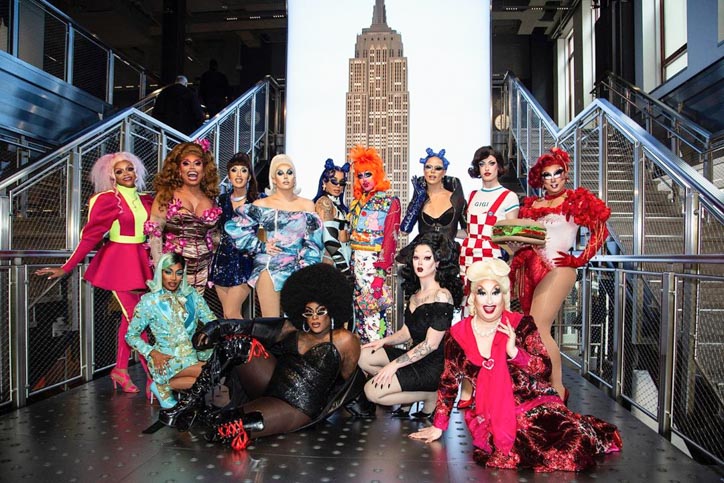
That’s precisely the gag of the new decade. Barely into the first quarter of the year, where the world has seen pretty much a whole lot at this point from natural calamities to political unrests, nothing could have prepared us for the biggest hit we’ve had to endure thus far, an alarming viral outbreak that has crippled the world to complete chaos and hysteria before eventually relenting to the inevitable social standstill.
With the exponential outbreak of the coronavirus or Covid-19, life looks like it will never be the same again. Everything that was normal up until a few weeks ago already feels like a lifetime ago. (Pardon us for being dramatic, but we all know a queer story isn’t complete without even just a dash of it.) As it stands, the streets are by all accounts empty, save for the necessary hum heralding human life through supply runs and the heroic efforts of the bold and brave front liners keeping many societies functioning in an uncertain time of clear and present danger.
Many industries and segments of society have taken great hits, chucked at the knee and gutted to its core, with almost everything shutting down, closing up, or temporarily taking a break, up until we are in the clear by flattening the curve. While no one is safe from the sharp claws of Covid-19, furiously cutting through the very fabric of sanity and stability, perhaps one of the severely affected are those non-contractual and freelance workers who live from pay check to pay check, one project after the other, and a circus act of side-hustles just to make ends meet. This couldn’t ring any more true than the entertainment industry, where the pay is directly proportional to the gig or raket. Now, in this unforeseen and unparalleled circumstance, how are people affected, like the drag queens that form part of the well-orchestrated nucleus that keeps the nightlife alive going to make their coin?
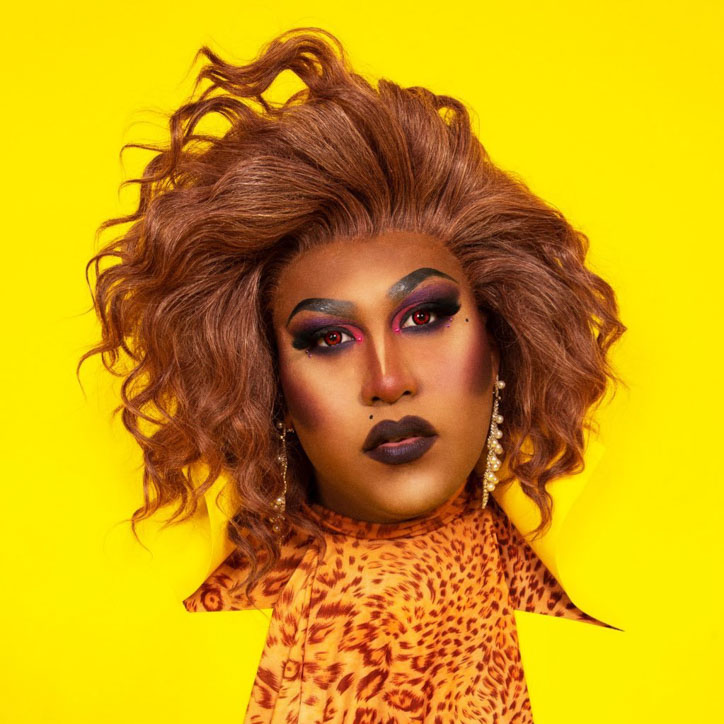
“It hit us harder than a lot of people. We want to entertain. [For many of us] this is the only way we know how to make money,” exasperates Catrina Lovelace, a drag queen serving it up in New York City. “At the moment, it’s the only way we can, because there are no other [service] jobs out there.” Gritty, subversive, and irreverent, drag is more than just entertainment and art—it is a potent form of expression that gives a voice to the community, pervading through many challenges of homophobia, archetype, and judgments, before finally hitting the mainstream through the renaissance of the culture the was borne from the underbelly of the nightlife. But with lockdowns of varying degrees being enacted to combat the menacing global pandemic, the mandated social distancing, quarantine, and curfews come with important realities to live by, drag queens are inevitably and their cohorts in the entertainment and service industry are veritably out of work for the foreseeable future. With establishments closing their doors temporarily closing their doors and venues kowtowing to preventive measures and ordinances, the deliriously fine, fierce, and fabulous industry is being bogged, or well, dragged down by these necessary impositions.
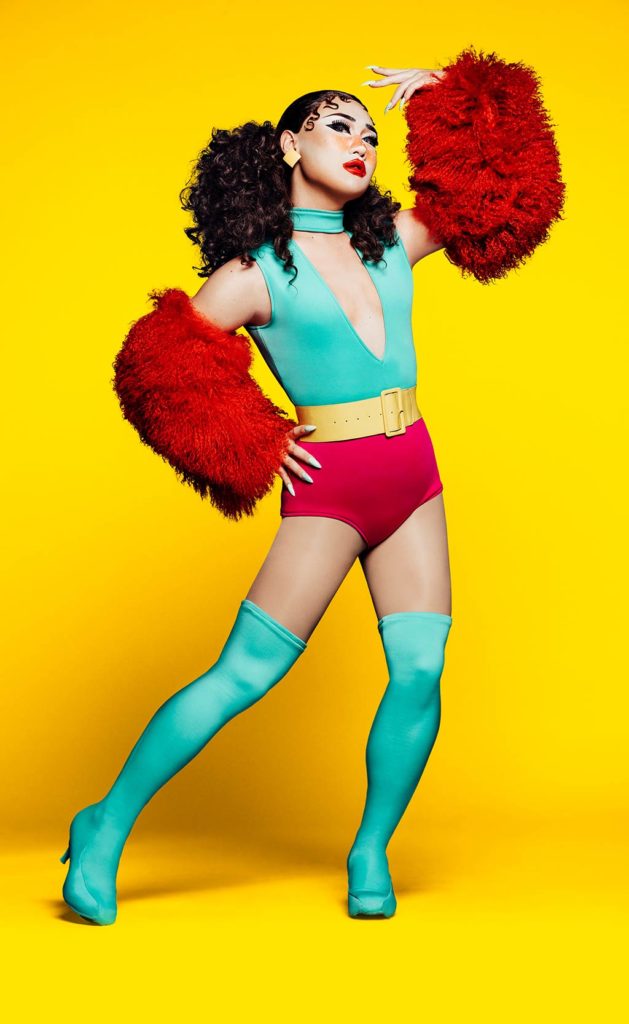
“It makes me feel desperate to figure something out. Usually, when one community has a problem, it’s not like the rest of the world has that problem, so we can try to find answers from the outside world,” says Soju, also of Drag Race. “But, it seems like the whole world is going through this, so who do I turn to for answers and help?”
The answer lies with you. Yes, you who is hopefully still reading up to this point, figuring out how indeed can drag survive this pandemic?
While this is a pertinent point of financially sustainable concern, as with many other segments of society riddled by the effects of the coronavirus, this potential sinker could very well reveal itself to be that turning point in the continuous evolution of drag.
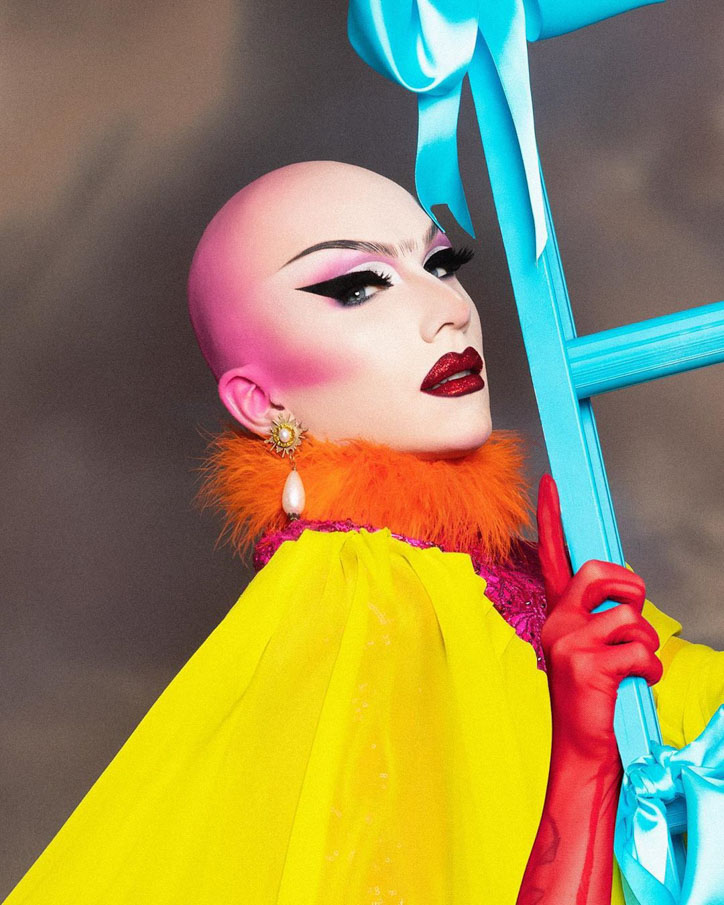
“It’s a wake-up call how we have to diversify. You have to have lots of different ways [to make money] so that when times are hard, there are different strategies,” says Sasha Velour, eponymous winner of RuPaul’s Drag Race and brilliant force behind the shows such as Smoke & Mirrors and Nightgowns. This means shifting the tectonic plates of pop culture and making technology a friend, just as many of us has turned to over the past few weeks. The truth of the matter is, people are desperately finding ways to be entertained and to cling on to the cragged edges of normalcy in this grim uncertainty. Much like how queer spaces have ascended from their core function of being a safe spot of happiness and acceptance for the community to becoming a source of happiness serving a greater scope of lost souls finding their corner in the world, there now exists a bigger role for drag to take on as the threat of the pandemic persists.
While venturing out is out of the question for the time being, the resilience and resourcefulness of the LGBTQIA+ community has compelled many drag queens and producers to turn to the digital landscape to recreate space where people can come together as a community and have their spirits lifted in the midst of this anxiety-inducing scare. Connecting people as they would at a bar or in large-scale venues, the subculture of the nightlife is being brought to you on your screens from the comfort and safety of your home.
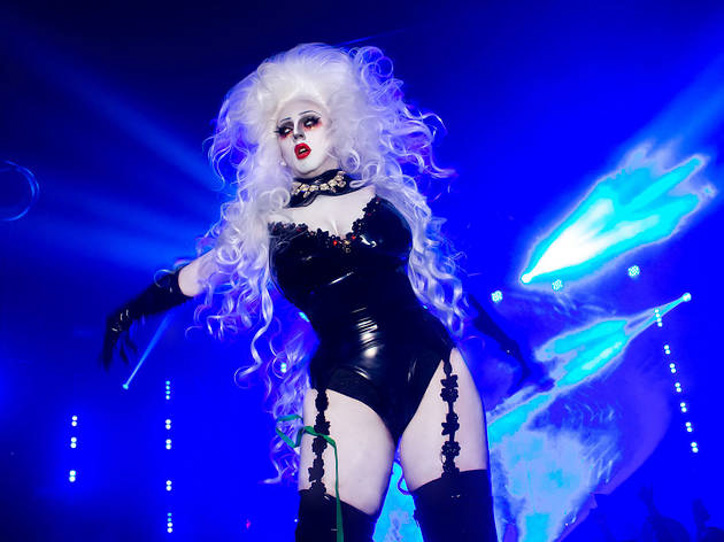
One of the first of its kind, the world will bear witness to Digital Drag, a show to be streamed on Twitch, which intends to broadened the prospect of performers to earn their keep in this predicament. With mastermind, Biqtch Puddin’ at the helm, featuring RuPaul’s Drag Race alums, Alaska and Rock M. Sakura, a new age of performative drag is dawning.
“[Drag artists] give an experience to give people. It’s relief mentally, emotionally, or comically, and when you’re not able to do that while sequestered in your house, you can watch this online streaming show from home and, for 30 minutes, have fun with whoever they’re watching,” explains Trinity the Tuck, All Star Winner of RuPaul’s Drag Race and one of the headliners of PEG Presents: Digital Drag Fest, a completely virtual revue made possible by Producer Entertainment Group and webcast site, StageIt. Rounding up a high-wattage assembly of contemporary drag entertainers, uniting the likes of Alaska, Divina de Campo, Ginger Minj, Jackie Beat, Jiggly Caliente, Jinkx Monsoon, Jujubee, Manila Luzon, Miz Cracker, Monet X Change, Nina West, Peppermint, Sharon Needles, Sherry Vine and country singer Brandon Stansell, the week-long web-based experience will simulate a live performance in a uniquely intimate setting (roughly an audience of 100 per show, with tickets starting at $10), where one can interact with the artists, tip them them through Venmo or PayPal, and even win prizes during the concert. Meanwhile, the transformative religious experience that is the Werq The World Tour is joining the digital revolution by staging Live Stream, a global benefit to raise funds for out-of-work entertainers. Produced by Voss Events and hosted by Bianca Del Rio and Lady Bunny, an assortment of top-calibre drag queens such as Yvie Oddly, Aquaria, Asia O’Hara, Violet Chacki, Miss Vanjie, Kameron Michaels, Kim Chi, Plastique Tiara, and Gigi Goode are set to charm, sass, and lip sync the house down to the largest online drag show audience in herstory.
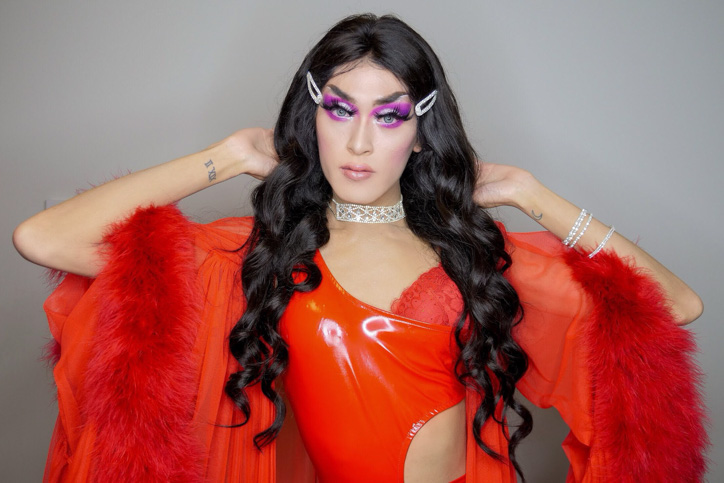
“For me, drag is a responsibility,” drag queen Juku says in an interview with Vice. “And I don’t mean that like it’s necessarily a bad thing. More that it’s our responsibility to bring light to subjects like these, to let everybody know that we’re gonna be OK. We can laugh. We can have a good time, even if that means having it in the comfort of our homes for a second.” As if assimilating to this new normal, local queens and entertainers have since been putting up online versions of their shows, broadcasting it on Facebook or Instagram Live. Locally, the pundits of our nightlife and proponents of Poison Wednesdays at Nectar Nightclub have taken to the wildly popular go-to for video communications, Zoom, to host an offshoot of their party, now cheekily called, Vaccine Wednesdays.
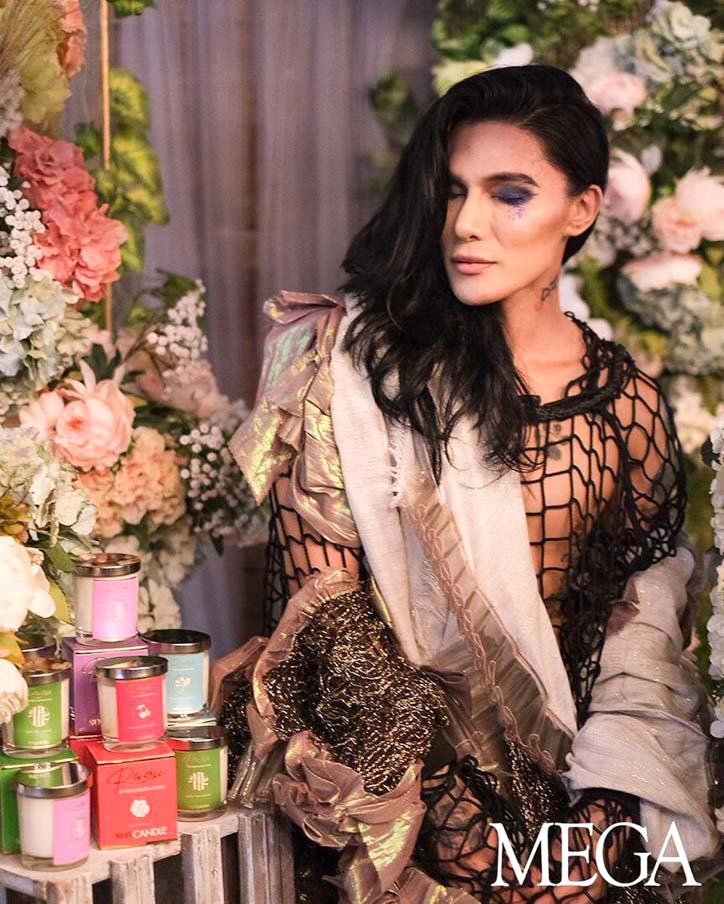
“As far as I know, we are the first ones to do it here in Manila,” says host and mother to all, Paulo Castro. “Just like what we do for Poison Wednesdays, we want to continue carving a space for people like us, kids who want to feel included, and turning into a home where only love exists.” Instead of a packed nightclub, the Wednesday habit popped on our screens with a copious dash of rectangles peppering with familiar faces beaming. And just like that, it felt like home, except with DJ sets, a raucous of conversations, and drag performances from Viñas Deluxe, Marina Summers, Ov Cunt, and the outspoken Dee Dee Marie Holliday who has also since defrayed production of her costumes and instead had them made into face masks for front liners in need. (Meanwhile, her tips from these digital shows will be parlayed to production of PPEs.) “We just want to have a bit of fun and make things normal like we usually do, laro-laro lang, especially during these hard-pressed times, but with a bigger purpose as always,” continues Paulo Castro of this effort he undertakes with Peabo Orilla. Vaccine Wednesdays will also be the platform where the winner of Eva Le Queen’s virtual drag competition on platforms such as TikTok and Instagram.
Digital drag as we will come to know of it for a while is an invention borne out of necessity, one that hinges on alleviating isolation that can potentially be destructive on shaken spirits, especially for queer people. After all, beneath all the smears of colors, stacks of lashes and wigs, and layers of looks bedazzled with sequins and rhinestones, there is a human that needs to survive. “People of drag and the LGBTQ community are extremely resilient,” affirms Trinity the Tuck. “We have to be. We’ve always been that way, and this is going to show one of the ways we can take a bad situation and turn it around and make something positive out of it.”
So, by all accounts, all hope is not lost. Where the nightlife remains to be tucked from behind the velvet curtains, readying itself for the eventual comeback, drag will survive as it has done in the past, and will rightfully do so in the future. The experience won’t be the same, yes, but better than nothing, right? In times like these, only the strong pull through, and that can only be drawn from tenacity and the agility to stare change down in the eye with fanned out, fluttering lashes. It won’t be too long, hopefully. And when the time comes, trust that it will be one hell of a good time where we can snap and scream: Oh no corona betta don’t.







